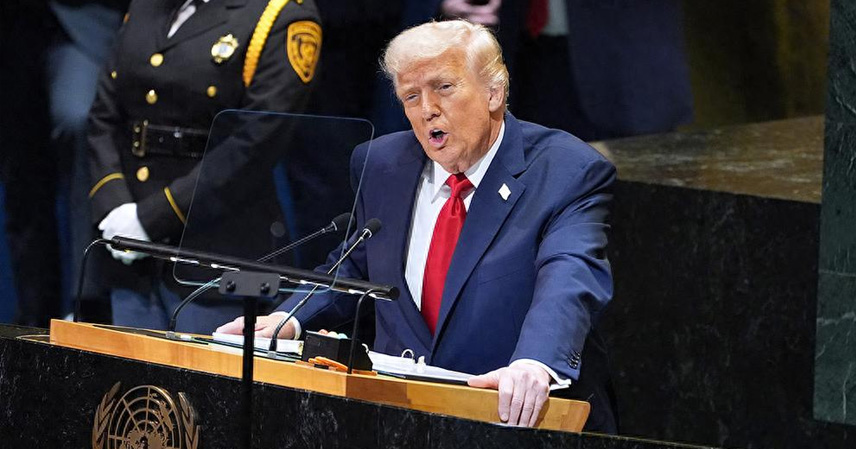When it comes to the “superstar” of international politics, Donald Trump almost always steals the stage. At the recent UN General Assembly, he turned what should have been a 15-minute speech into a 57-minute solo performance, setting a new record.
Delegates looked at each other in disbelief. Was Trump there to discuss global issues—or just to stage another MAGA-style campaign rally?
From Broken Escalators to Broken Logic
Trump’s drama started even before his speech. The escalator stopped midway, forcing him and Melania to walk up. Moments later, the teleprompter went black.
For most leaders, such mishaps would have been embarrassing. But Trump thrives on improvisation. He joked about being given “a broken escalator and a broken teleprompter,” then cleverly used the moment to attack the UN as inefficient and incompetent, turning the technical glitch into political theater.
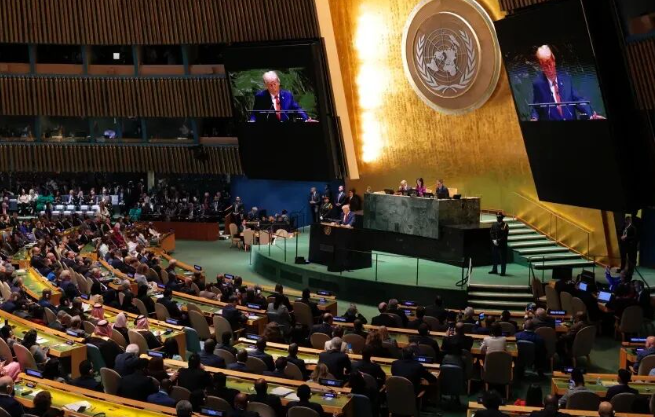
His improvisation drew some laughs, but as his speech dragged on, it became clear: this was less about world affairs and more about Trump’s personal showmanship.
The “Peacemaker” Who Claimed Seven Conflicts
The centerpiece of Trump’s speech was his self-proclaimed achievement of ending seven conflicts. Yet a closer look reveals that his so-called peacemaking was full of exaggeration.
- India-Pakistan conflict (May 2025): India’s botched air raid led to its own losses, forcing a ceasefire. Trump claimed credit, but India’s government publicly denied U.S. involvement.
- Iran–Israel clash (June 2025): After mutual airstrikes, the U.S. escalated matters by bombing Iranian nuclear facilities. Trump labeled it “peace through strength,” but critics called it reckless escalation.
- Red Sea crisis: U.S. carrier groups fought the Houthis but eventually withdrew under pressure, privately cutting deals. Hardly a “victory,” more like a retreat.
- Russia–Ukraine war: Trump once boasted he could end it in 24 hours. Seven months later, fighting is fiercer than ever, and his positions remain erratic.
As for conflicts like Azerbaijan–Armenia or DR Congo–Rwanda, Trump’s involvement was peripheral at best. In reality, his role was more about claiming credit than solving problems.
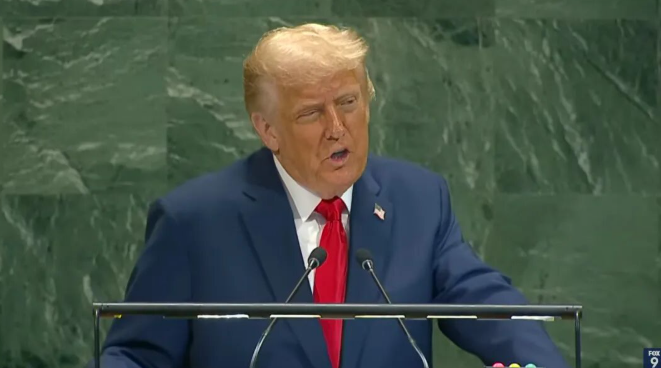
Trump’s “Golden Age” vs Harsh Reality
Trump loudly declared that the U.S. is in a “Golden Age,” with “the strongest economy, military, and spirit.” The facts, however, tell a different story:
- Economy: U.S. farmers are desperate. Since 2025, China has cut soybean imports, threatening billions in agricultural exports.
- Diplomacy: He criticizes China and India for buying Russian oil, while U.S. alliances crumble under his constant demands for NATO members to raise military spending to 5% of GDP.
- Multilateralism: He dismissed global consensus on Palestine, saying “even if 150 nations recognize it, they are still the minority.” Such statements expose his unilateral and hegemonic mindset.
Adding irony, Trump blasted the UN as useless—while the U.S. remains its biggest debtor. It’s like refusing to pay your HOA fees while scolding the company for poor service.
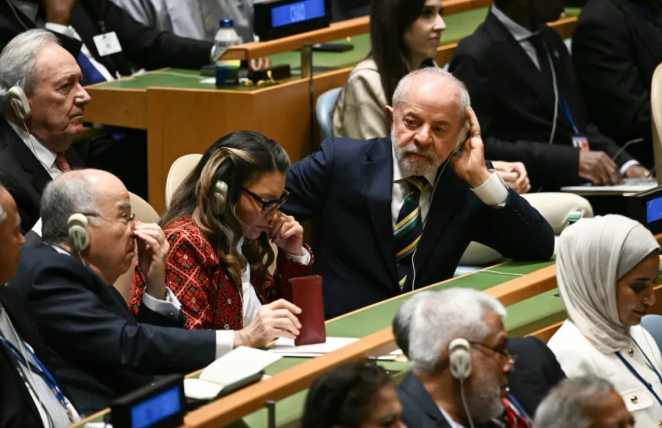
International Pushback
Trump’s speech failed to win applause. Instead, he faced strong rebuttals:
- Brazil’s Lula directly rejected U.S. interference, declaring “our sovereignty is non-negotiable.”
- France’s Macron announced formal recognition of Palestine, undermining Trump’s pro-Israel stance.
- UN Secretary-General Guterres reminded that “no single country can solve global problems,” a subtle rebuke of Trump’s unilateralism.
At the end, only scattered polite claps could be heard. Compared with the laughter that greeted Trump’s 2017 UN debut, this time he was met with icy silence.
China’s Contrast: Building Platforms, Not Tearing Them Down
While Trump staged his one-man show, China made a significant announcement: it would no longer seek new “special and differential treatment” under WTO negotiations.
This move signals China’s willingness to give more space to other developing countries and inject confidence into global trade. As Vice Minister Li Chenggang put it, this was about “offering a strong boost to world commerce.”
The contrast was striking: China was offering solutions, while the U.S. was creating problems.
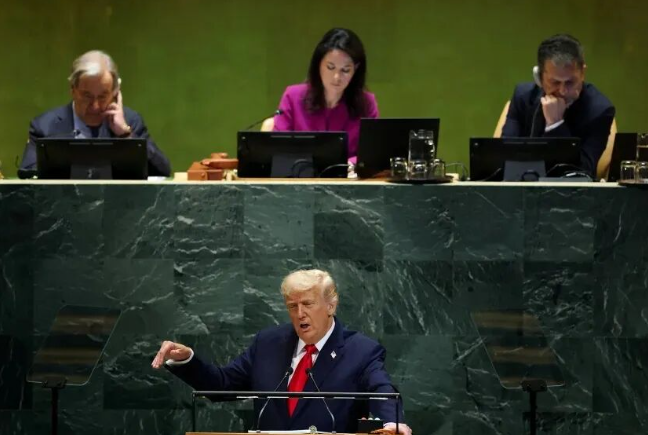
The Final Act: Isolation Behind the Noise
Trump’s UN performance was less about diplomacy than domestic politics—a scripted rally disguised as a world speech. But the UN is not Mar-a-Lago, and the audience is not his cheering base.
The world has changed. Unilateral bullying, empty promises, and erratic positions no longer work. Trump’s 57-minute tirade may have stripped away the last veneer of U.S. hegemony. Instead of showing greatness, it revealed growing isolation.

